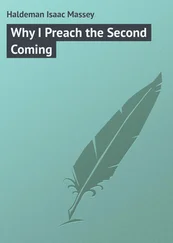Porkpie, boater, homburg, fore and aft, bombardier, Panama, betty tilt, Ascot, chimney pot, cockade, tiara, bucket, ten-gallon, beanie, turban, bowler, Montecristi, Stetson, Borsalino… The very notion of haberdashery is fantastical. Hail the helmet of Mambrino! It’s why their names are so picaresque. That a mere piece of felt or wool or, yes, even metal, could provide protection from God’s ultimate wrath — yet we don these illusions daily. We cover our heads. As a sign of defiance? Of faith? Of respect? Of fear? Yes. But above all, my friends, above all — hats are love. No helmet in the universe more powerful than the belief that covering one’s head will make a difference to God… Consider the case of Kaplansk’s Jews: skullcaps? A thin layer, a mere chimera, and yet don them they do. As do we all.
“Hey, Kaplansk, you heathen, where’s your yarmulke?… Kaplansk?”
“He’s asleep.”
“Again? At six o’clock in the evening?”
Late Monday afternoon, and Obadiah and I are contemplating each other’s existences in the plastic chairs in front of his house. Soccer goes on. The thud of the ball like the irregular heartbeat of Goas. Pohamba’s curtains are pulled. Weekend sinners sleep away Monday. Beneath the acacia, Festus is barbering boys with his battery-powered razor. One desk chair beneath the tree, a plastic bag for a bib shoved up under each customer’s chin. Festus is not a subtle barber. He balds the boys, and one after another they walk away, shiny eggs.
Obadiah groans. “The mouth arriveth,” he says. Moments later we watch her approach. She gets larger and larger, and yet Auntie doesn’t move exactly; she oozes. She manifests. She heads toward us, calls out to Obadiah, “All men who have said I am beautiful have died. Except one. I see a shroud over your face, Head Teacher.”
“But, my dear,” Obadiah says, “never once have I ever said that a hirsute woman such as yourself was —”
“Happy death, Head Teacher,” she says, and without stopping veers toward the field and begins to cross through the middle of the game. She picks up speed as she gets closer to her prey, which is clearly the fuzzless tennis ball the boys have been using since the latest soccer ball got punctured. Ignore, ignore, ignore, but how can you when she’s after the ball? When she reaches it, Auntie savors the moment. Before she swipes anything, she always licks each of her fingers. She does this right now, agonizingly slowly, before swooping, reaching, snatching. She shoves the tennis ball down the front of her dress.
“Come, boys, come and get it.”
For the first time in recorded history, the boys rush toward the hostel an hour before wash call. Auntie turns her sights next on the singles quarters. Obadiah and I watch. She reaches Pohamba’s door. She knocks. He doesn’t answer. She knocks more. Then Auntie begins to pound on Pohamba’s door with both fists. Still no answer. She thrusts her wide corpus delicti against the door. Whap. Whap. We’re surprised she doesn’t break it down. Auntie insults easy. She knows he’s in there. I recall the double-ply toilet paper we brought from the dorp on Wednesday, after weeks of forgetting to buy it. (We’d been using pages from old Afrikaans paperback novels.) Pohamba keeps the stash in his wardrobe. The door cracks open. Pohamba — in his lucky lilac undershirt — exhausted, slumped, bows, greets her. We watch from across the field. Then Pohamba stands straighter and crosses his arms over his chest as if he’s barring the door. A mere boast. We know he’ll give way. That he’ll let her in, let her take what she wants. Take the Charmin, woman . But it doesn’t happen, the giving way you do for Auntie when she comes a-calling. He — we can see this plain as day — is listening to her. The time to dodge the monologue has passed, and still Pohamba stands before her. It’s an emergency — and us two cowards, we don’t twitch. There is no hue and cry from the plastic chairs. Festus’s buzzing razor clicks off, and we know he’s hypnotized as well.
There’s an unusual stillness in Pohamba, a tranquilizing of his spirit. His body, in the door frame, now limp. He’s enchanted. It’s here I make an obvious link, but still one I’ve never made before — between stealing and monologing. When she monologued us, she robbed us of our life’s time, and maybe this is why she never quite aged like a normal person. Our time fattened her. We watch Pohamba grin. He backs into his room. This is a different sort of giving way. He does it willfully, joyfully, meltingly. Goodbye, friend, so long. It’s been good to —
At the same time, I can’t help but wonder, as Obadiah gags, what if it works? What if she could filch them? Our tormented desires. Our desires tormented. The door closes behind Auntie’s enormous ass, like the gate of a bakkie on a load of mealie sacks. A few moments later a hand — not Pohamba’s, a thick, soft, braceleted hand — appears out Pohamba’s window. The hand holds a tennis ball. Then the hand’s fingers spread open — all five fingers wide, ecstatic — and the ball, like a tiny skull, drops into the dust.
She hounded me about my cold feet, my literally cold feet, and she thought it hilarious that the desert didn’t make any difference, that I could be sweating all over and my feet were still like ice water, and she asked once if I wanted her to blow on them, and I said, No, please, just stay away from them, don’t call attention to them. And she asked how such a thing could happen. I said, I’m from North America, basically I’m an Eskimo. That, and the fact that my feet sweat and then they cool off too quickly. She didn’t accept this explanation.
“Are they ugly? Ugly albino rabbits? Why are white people so afraid of their feet? Please, just a look —”
“Never.”
In socks, nothing but socks, half off, bunched.
84. THE ASSISTANT PRINCIPAL
News off the farm line that Obadiah’s old friend Ganaseb has died in town. I’ve been summoned by a boy to the Datsun. Normally Obadiah savors, today he palms the bottom of the bottle and drinks as if he’s trying to shove it down his throat. “Naturally,” he says, taking a break, “you will attend the funeral.”
“But I never knew Ganaseb.”
“Not important. The man was a teacher here. You and he are of the same family now, whether you choose to accept this onus or not, our families being nothing if not onuses. Follow me? By the way, have you written your father to forgive him his trespasses?”
“When’s the funeral?”
“You see, Ganaseb was blessed. That was the difference. He escaped and enjoyed Goas only in his memory, the only true way to live here. You should have heard Ganaseb talk. The long veld nights, the clean air, the russet sunsets.”
“I’ve got to go open the library.”
“You’re the librarian?”
“Sub-deputy chief.”
“Who’s chief?”
“You.”
“In that case, I declare a day of mourning. All public institutions must be closed out of respect.”
“I’ve got reading group.”
“What are you reading?”
“Mowgli.” I start to climb up and over the door.
“That tripe? Wait,” he says. “Ganaseb was a big man, an important man, an assistant principal. Not once since he left did he return to visit us. I always met him in town.” He seizes my arm. “And do you want to know the vicious truth of it?”
“What?”
“The man had a Volvo.”
The priest drove us into Karibib in the back of the bakkie. The women wore black dresses they looked too comfortable in, as if death were a uniform waiting in the closet. Antoinette gripped Tomo by the neck, like a puppet under arrest. Mavala held the tarts Antoinette had baked for Ganaseb’s widow. Pohamba tried to sneak his hand under the foil and grab some crust off a tart. Mavala tucked the tarts under her dress, which didn’t stop Pohamba’s mission. As we pulled away, some boys chased us, shouting, “Teachers, buy us Lion Chips!” Antoinette commanded they desist with a flick of her wrist, and the boys fell away one by one, laughing and throwing their arms around one another.
Читать дальше












